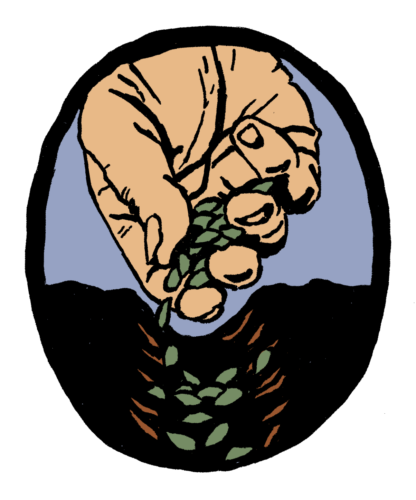
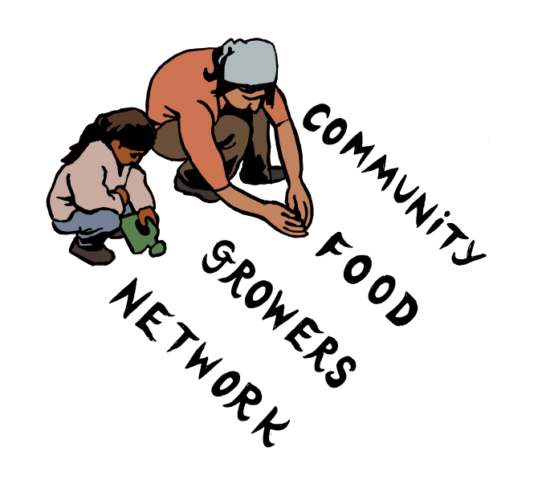
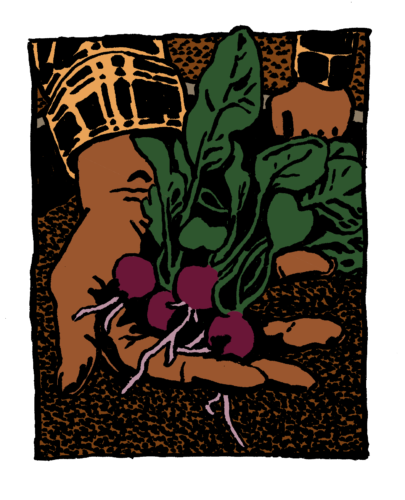
The Community Food Growers’ Network (CFGN) is a not-for-profit, collectively managed network of projects committed to community food growing. We exist for the benefit of community food growers, local communities, their economy and the environment. We work mostly in London and the surrounding areas.
This manifesto has been co-written by network members to outline our shared beliefs, commitments and practices. It is a live document, both shaping and being shaped by our work.
Building connected and resilient communities
We believe that food growing and food systems are always political. We strive for the work we do to be shaped by the principles of justice, care, equity, interconnection, and cooperation.
We strongly believe that localised agroecological food systems have the power to build connected and resilient communities. We believe that these food systems, from growing to eating, have the potential to challenge structural oppression (colonialism, racism, classism), the corporate pursuit of profit and accumulation that shapes mainstream local and global food systems, creating alternatives to these systems. This means looking at the ways in which power and privilege (e.g. over resources, decision making, narratives) are held within our network, our projects and the communities we work within, and pushing against this. It also means resisting the co-option of community food growing for corporate greed.
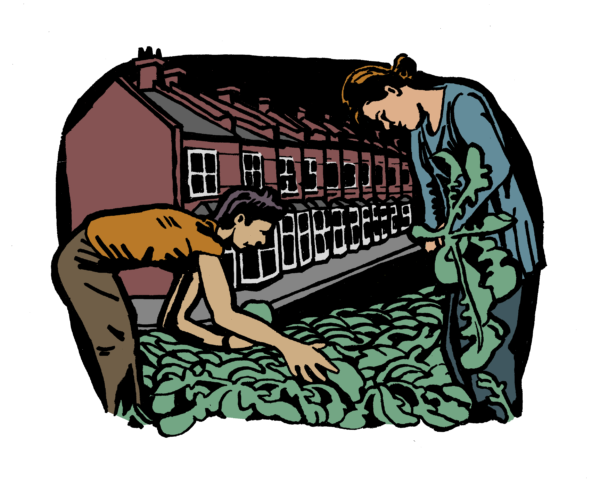
Participatory, transparent, inclusive and democractic control of land
We promote shared social and environmental values which protect land as a Commons, rather than a commodity. We see land as a source of wealth that belongs to all, where individuals act as stewards; taking a long term view, considering the impact of land use and management on others, including future generations and the environment.
We acknowledge the potential of food growing projects to be complicit in processes of gentrification. We seek to understand and challenge all processes in which access to and control of land is concentrated in the hands of the few as private property.
We believe land should be available to all, and used to promote cohesion, health and increased access to food, in addition to the opportunity to take part in growing food. Control of land should be participatory, transparent, inclusive, democratic and contribute to the well-being of all, taking into account complex relationships between social and natural processes. (from People’s Land Policy, 2019)
CFGN supports land-based projects to make land accessible for community food growing and related activities and redress unequal access to land. People should have the right to participate in multiple ways in their chosen communities (e.g. through access to public green spaces to celebrate, learn, hold cultural events, grow/make food).
Respect and care for the land and our environment
As member projects we demonstrate and promote agroecological practices in local land management and food production. We support the ongoing work of international food sovereignty movements such as the Declaration of Nyéléni to offer a challenge to current highly unsustainable food growing practices at the national and global levels.
We believe that nourishing food is grown using agroecological methods that respect and care for the future of our soils and the biodiversity of our environments as well as the people who do this valuable work.
We commit to caring for the land and environment as a holistic ecological system, for the intrinsic value of land itself rather than for extraction. This includes care of the soil, sovereignty over seeds, and a commitment to restoring and building biodiversity.
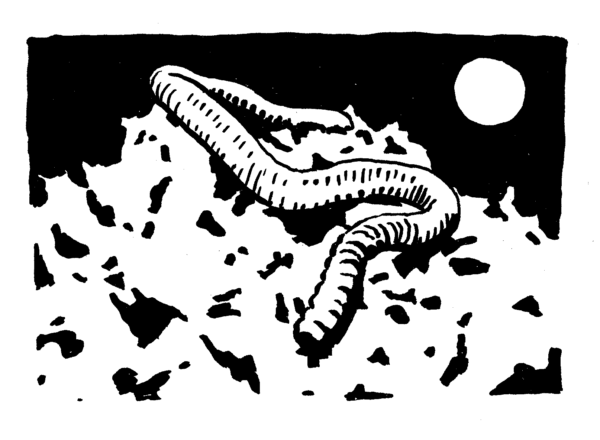
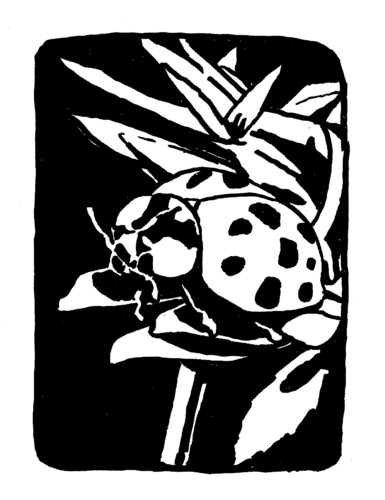
Food as a right
We believe that organic, locally grown and nutritious food should be accessible and affordable for all. Everyone has a right to healthy, culturally appropriate food, grown to nourish people not profits. We work to advance this goal across the network and in our analysis and visioning of community food systems.
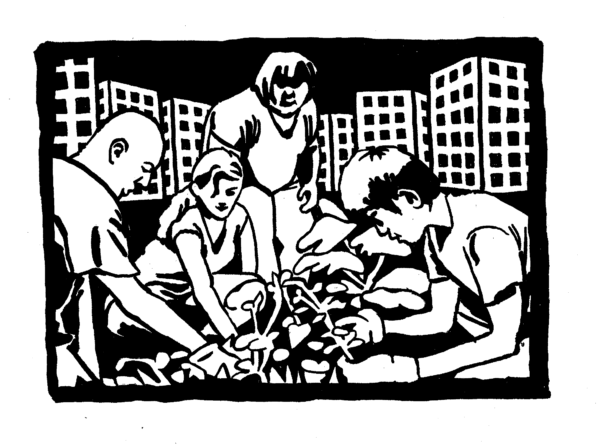
Fair pay, secure employment and improved support
We believe that the work of growing food and sustaining community food projects is vital, and should be valued and nurtured in a variety of ways, for example through fair pay, secure employment and improved access to support, training, space and pathways to progression. We aim to lower and remove barriers to working in food growing, and act to eliminate prejudice and discrimination, in order to create space for underrepresented groups.
We support and draw inspiration from co-operatively run projects which aim to redistribute wealth and resources more fairly, and organise non-hierarchically.
We acknowledge that member projects may have barriers to the contributions they can make due to structural inequalities between member projects (eg differences in access to funds, security of lease, the disproportionate impact of gentrification and/or development). We work to ensure member projects can be equal benefactors of the work and policies of the network.
Connecting people to land, wildlife and plants
We believe it is necessary to decommodify food production, this means (re)creating ways to connect people to land and the wildlife and plants we share it with through the process of growing food together, creating and maintaining bio-diverse publically accessible green spaces.
We believe in continuous learning about food growing and connection to land in a global setting and sharing that knowledge via action in a local setting through practices of mutual aid, support and a celebration of interdependence.
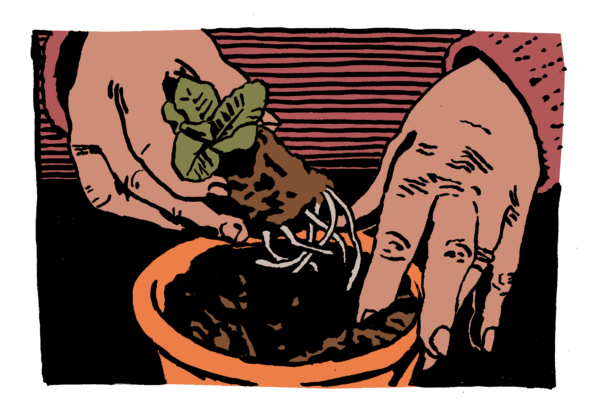
This manifesto has been co-authored across 3 workshops in 2019-2020, which were designed and facilitated by Zahra Dalilah.
Glossary of terms
Agroecological – Agroecology is a framework for describing the knowledge and practices of food producers working in resilient and sustainable food and land-use systems. Agroecological farming and land management is place based, sustainable and deeply integrated with local ecology and environment (from The Land Workers’ Alliance Theory of Change)
Structural oppression – Refers to the mistreatment of people within specific groups (aligned to race, gender, class, sexuality, ability, immigation status and so forth), supported and enforced by the practices, policies, laws, infrastructures and standards of society and its institutions. ( adapted from Lessons in Resilience from Social Justice Focused Farms in the USA by Beth Stewart)
Power and privilege – In the context of CFGN, “power and privilege” may refer to the ways in which race/ethnicity, class/income and ability/capacity feature within and between member projects in terms of access and ability to act/do something. CFGN projects have acknowledged that differences exist between them in terms of status and access to resources, and that paid/unpaid (volunteer) power/decision making dynamics exist in projects. The location of a project in relation to land and London location also makes a difference to power and privilege. When we talk about power and privilege we are concerned with the ways it impacts access to resources, decision making, and narratives. (adapted from Power and Privilege Awareness Training: enabling participation and access – a taster workshop by Mama D and Ian Solomon-Kawall, November 2017 and CFGN strategy day April 2020 with Zahra Dalilah)
Commons – The Commons can be described as “a shared resource, co-governed by its user community according to the community’s rules and norms. Things that can be managed as a commons include natural resources (land, water, air), and created assets (culture, knowledge), and can be either inherited or human-made, but ‘The Commons’ refers to the process as a whole — the synergy between the elements of a community, a resource and the rules for its co-governance.” (from Commons Transition Primer/ David Bollier https://primer.commonstransition.org/1-short-articles/1-2-what-are-p2p-and-the-commons-and-how-do-they-relate)
Gentrification – Gentrification is a process where land and property become increasingly concentrated in the hands of a few, excluding and displacing lower income residents and communities in a neighbourhood. This produces marginalisation, powerlessness, isolation, disconnection, and disenfranchisement from political life, and leads to segregation, conflict and injustice. (for more info see https://foodfirst.org/phat-beets-new-gardens-a-community-response-to-food-gentrification/)
Participatory – Participatory decision making with regards to land engages everyone affected in effective processes that enable them to feed in to a national-level policy on how land should be used and managed and then to engage in local decision-making on how the policy should be implemented locally. (adapted from People’s land policy)
Seed sovereignty – “Seed Sovereignty reclaims seeds and biodiversity as commons and public good. The farmer’s rights to breed and exchange diverse Open Source Seeds which can be saved and which are not patented, genetically modified, owned or controlled by emerging seed giants.” (from Lexicon of Food https://www.seedsovereignty.info/)
Biodiversity – “Biodiversity is defined as “the variability among living organisms from all sources including, terrestrial, marine and other aquatic ecosystems and the ecological complexes of which they are part; this includes diversity within species, between species and of ecosystems.” (from https://www.greenfacts.org/en/biodiversity/l-3/1-define-biodiversity.htm)
Cooperatively run – Projects that are cooperatively run, tend to operate according to the following principles: voluntary open membership, democratic member control, cooperation with other coops, autonomy and independence with mutual aid, education, training and information, concern for community, member economic participation and economic equality. (from https://www.uk.coop/the-hive/is-a-co-op-right-for-you/getting-started/co-op-movement/values-principles)
Non-hierarchichal organisation – A non-hierarchichal or ‘flat’ organisation is structured in a way which promotes equality between members, shared responsibility/ accountability and mutual support. Often decisions are made by consensus, and there is no top-down leadership or management. (adapted from Radical Routes and Seeds for Change)
Decommodification of food – challenges the way in which Big business dominates our global food system, controlling much of the production, processing, distribution, marketing and retailing of food. Such a concentration of power enables big businesses to wipe out competition and dictate tough terms to their suppliers. It forces farmers and consumers into poverty and hunger and ill health (adapted from Global Justice Now Food Sovereignty Campaign https://www.globaljustice.org.uk/what-food-sovereignty)
Mutual aid – “Mutual aid projects are a form of political participation in which people take responsibility for caring for one another and changing political conditions, not just through symbolic acts or putting pressure on their representatives in government, but by actually building new social relations that are more survivable” (from Big Door Brigade)
Interdependence – ‘Interdependence is mutual dependence between things. If you study biology, you’ll discover that there is a great deal of interdependence between plants and animals. “Inter-” means “between,” so Interdependence is dependence between things, the quality or condition of being interdependent, or mutually reliant, on each other’ (From Brown, adrienne maree, 2917. Emergent Strategy: Shaping change, changing worlds. AK Press: Edinburgh, pp. 83)
Illustrations by Toby Munnion.

Pingback: Spring Gathering / LUOS / 04.04.15 | Community Food Growers Network | connect, cooperate, support, defend, campaign and celebrate
Pingback: Where Next Now for the Community Food Movement? | Community Food Growers Network | connect, cooperate, support, defend, campaign and celebrate